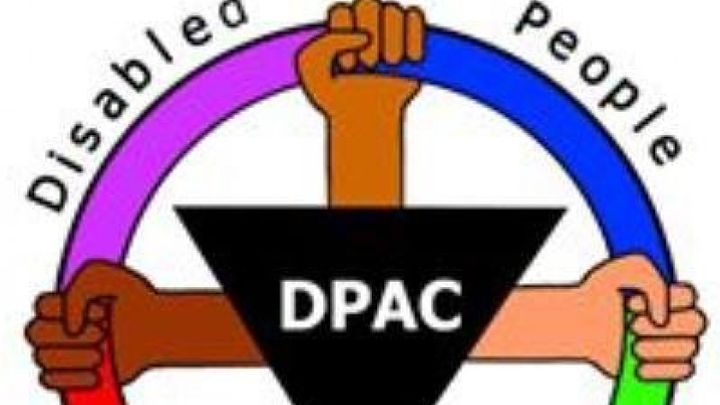
Independent Living Legal Fund
Donation protected
Independent Living Fighting Fund – donations needed now to support Disabled people hit by the closure of the Independent Living Fund (ILF) fight cuts to vital day to day support
DPAC is asking for donations for an Independent Living Fighting Fund to support individual Disabled people to challenge cuts to their social care support packages following closure of the ILF. The ILF campaigners fought fiercely against the closure, taking their protest right to the doors of the House of Commons chamber, exposing to the world the disgraceful way the UK government is treating its Disabled citizens. The Fund finally closed on 30 June but the fight is far from over. Disabled people hit by the closure need solidarity now more than ever as the cuts we all fought so hard to prevent start to kick in.
The government said the closure of the ILF was a transfer not a cut (http://www.theguardian.com/society/2015/jun/11/impact-of-changes-to-disability-benefits). This was a lie. Some notable Councils such as Hammersmith and Fulham have committed to protecting people’s support packages in the short-term but in other areas serious cuts are already starting to happen as former ILF recipients are re-assessed to determine the level of social care support their Local Authorities will continue to fund. In Waltham Forest for example nearly 90% of former ILF recipients have had their support package cut as a result of the closure of the ILF, with more than a quarter having a cut of 50% or more (http://www.disabilitynewsservice.com/independent-living-fund-shocking-drop-in-support-after-ilf-closure/).
Cuts of this level mean robbing Disabled people of independence, dignity and equality. It also places people at risk as tragically evidenced by the case of Amanda Richard (http://www.dailymail.co.uk/news/article-3266218/Disabled-mother-died-house-fire-24-hour-care-cut.html) who died in a house fire in Coventry after her support hours were cut. Forcing use of incontinence pads on Disabled people who aren’t incontinent is emerging as one common tactic, as is blanket removal of night-time support and increasing expectations on, often elderly, family members and neighbours. One former ILF recipient was told that if she wanted to continue attending her community choir, other members of the choir could assist with her physical needs in place of needing paid support hours. The reassessment of another made a recommendation for behaviour therapy in order to cope with the removal of their night-time support following closure of the ILF.
Disabled campaigners warned that the closure of the ILF signalled the end of independent living for Disabled people. Local Authority administered care and support has proven itself unable to consistently provide Disabled people with adequate support to live, work and study in the community with the same chances as non-Disabled people. The current crisis in social care funding means things are only getting worse as Councils consult on further cuts to community support (http://www.disabilitynewsservice.com/council-is-trying-to-push-through-care-cuts-without-proper-scrutiny/), meanwhile investing in the building of new ‘super care homes’ to house Disabled people en masse (http://www.disabilitynewsservice.com/threat-to-independent-living-as-council-plots-raid-on-high-cost-care/).
Having lost the legal challenge to quash the decision to close the ILF it is now imperative that support is available for each former ILF recipient at risk of cuts to essential support. There are a number of dedicated solicitors committed to providing legal advice, however changes to legal aid mean that some Disabled people are no longer eligible yet not in a situation where they can fund the legal action they need to challenge what is happening. It is also true that we cannot reach every former ILF recipient affected and we also know that many are too frightened to speak out for fear of losing what support they have got. Legal challenges are an important way of testing out the rights of former ILF recipients under the Care Act 2014 and making examples out of Local Authorities that are not meeting their legal duties.
This is why we need a fighting fund available to support legal challenges by former ILF recipients not eligible for legal aid.
What you can do:
Donate to the fighting fund. We have cases that need to be actioned in early January so the sooner you can give the better. To donate use this site or go through DPAC’s paypal or contact us via [email redacted].net for details for a BACS transfer. Include “ILF FF” as the reference.
Circulate this post to your friends, family and fellow campaigners asking them to donate too.
Organizer
Linda Burnip
Organizer